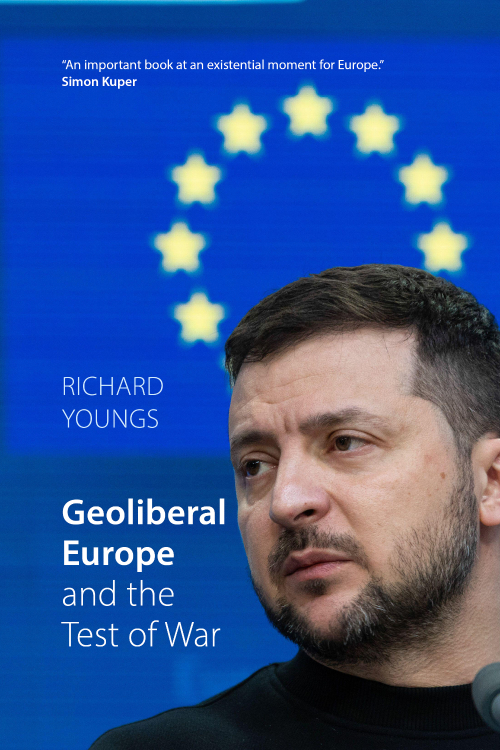Source: Agenda Publishing
Russia’s invasion of Ukraine has pushed Europe into a new strategic era. The knock-on effects of the war have combined to open a period of reordering across the European continent. European governments and the European Union collectively have begun to fashion policies for this shift, recognizing this to be a pivotal historical moment. Richard Youngs unpacks the different dynamics that have come to characterize European policies in the wake of the war: the nature of EU integration, geopolitical power, defense priorities, European borders, liberal values, the green transition, and economic sovereignty.
The book looks to the future and outlines the issues and choices with which European governments still need to grapple. Youngs develops the notion of geoliberalism as a way of addressing these challenges and guiding European governments and the EU into the fragile order taking shape in the shadow of Ukraine’s war.
Advance Praise
“A must-read for everyone thinking about how Europe can live up to today’s geopolitical challenges while remaining true to its liberal foundations.”
—Anna Lührmann, Minister of State for Europe and Climate, Germany.
“Russia’s unprovoked full-scale invasion of Ukraine required the European Union to rise to the urgency of the moment. Now, the task is to build a new European and global order. Youngs’ book is essential reading for anyone wanting to understand how and why that can be accomplished.”
—Erik Jones, Director, Robert Schuman Centre, European University Institute.
“Youngs poses a very big question, in clear prose: how will Russia’s invasion of Ukraine change Europe? His notion of ‘geoliberalism’ could become crucial in understanding our new era. This is an important book at an existential moment for Europe.”
—Simon Kuper, columnist, Financial Times.
“A major exploration of Europe’s shifting geopolitical landscape, a must-read for anyone hoping to understand the consequences of Putin’s war on Ukraine.”
—Norma Percy and Lotte Murphy-Johnson, producers of Putin vs the West.







-1.jpg)


